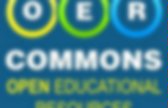

Create Quizzes Online - Create Flashcards Online - Create Study Guides Online - Online Notes | QuizMEOnline. TeacherTube - Teach the World. Khan Academy.
Welcome to the Greek online school! | Learn Greek. The online Arabic & Egyptian School | ArEg Learn Arabic, Learn Egyptian. Learn Spanish - The online Spanish School | colegioo.com. Curriki. WatchKnowLearn - Free Educational Videos for K-12 Students. Reliable Source? And Don’t Use Wikipedia! Or Should we? The Top 10 Reasons Students Cannot Cite or Rely On Wikipedia. 10. You must never fully rely on any one source for important information. Everyone makes mistakes. All scholarly journals and newspapers contain “corrections” sections in which they acknowledge errors in their prior work. And even the most neutral writer is sometimes guilty of not being fully objective. Thus, you must take a skeptical approach to everything you read. The focus of your search should be on finding accurate information and forming a full picture of an issue, rather than believing the first thing you read. 9. 8.
In March 2009, Irish student Shane Fitzgerald, who was conducting research on the Internet and globalization of information, posted a fake quotation on the Wikipedia article about recently deceased French composer Maurice Jarre. Fitzgerald was startled to learn that several major newspapers picked up the quote and published it in obituaries, confirming his suspicions of the questionable ways in which journalists use Web sites, and Wikipedia, as a reliable source. HippoCampus - Homework and Study Help - Free help with your algebra, biology, environmental science, American government, US history, physics and religion homework. Online Math Help & Learning Resources. Creative Commons. Free News, Magazines, Newspapers, Journals, Reference Articles and Classic Books - Free Online Library.
Smarthistory: a multimedia web-book about art and art history. MeL: The Michigan eLibrary. Open Culture. Digital Public Library of America. Open educational resources. Open educational resources (OER) are freely accessible, openly licensed documents and media that are useful for teaching, learning, and assessing as well as for research purposes. Although some people consider the use of an open file format to be an essential characteristic of OER, this is not a universally acknowledged requirement. The development and promotion of open educational resources is often motivated by a desire to curb the commodification of knowledge[1] and provide an alternate or enhanced educational paradigm.[2] Defining the scope and nature of open educational resources[edit] The above definitions expose some of the tensions that exist with OER: At the same time, these definitions also share some universal commonalities, namely they all: cover both use and reuse, repurposing, and modification of the resources;include free use for educational purposes by teachers and learnersencompass all types of digital media.[10] History[edit] Licensing and types of OER[edit] OER policy[edit]